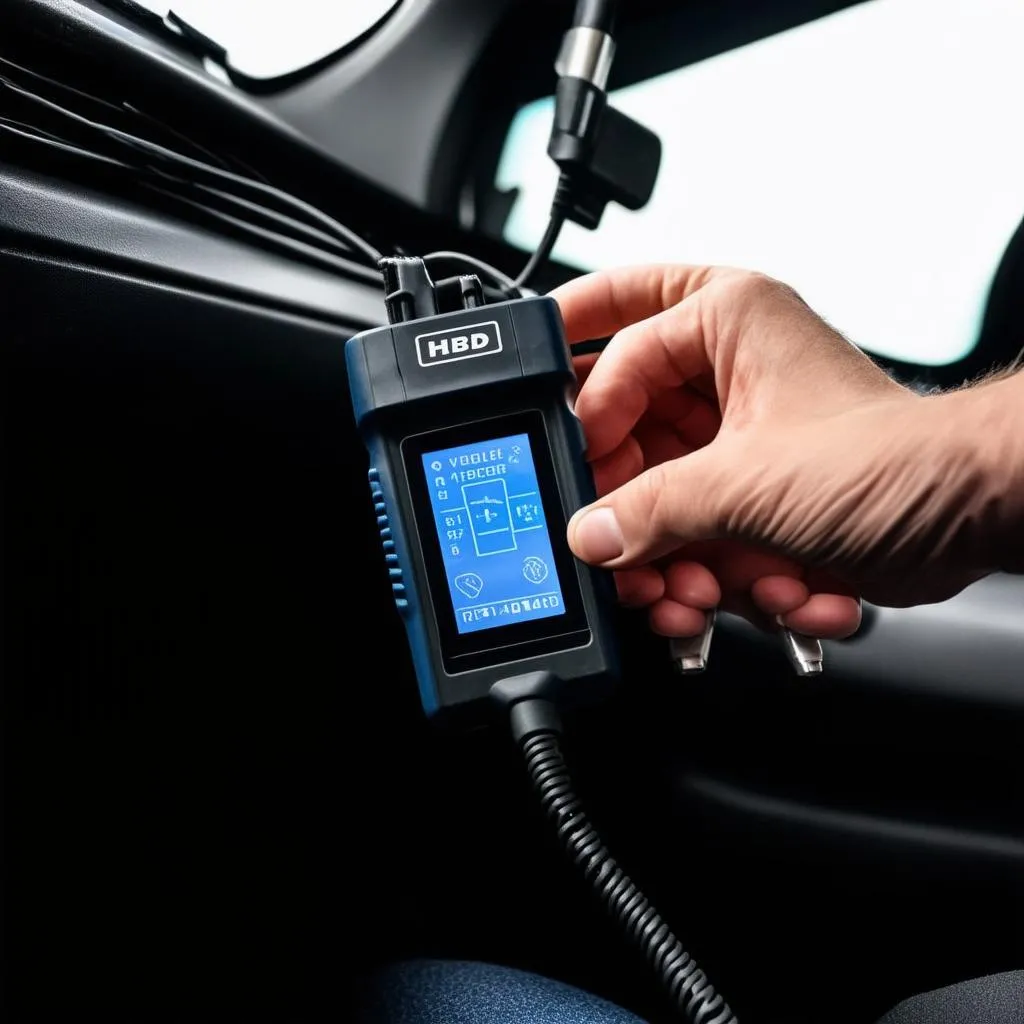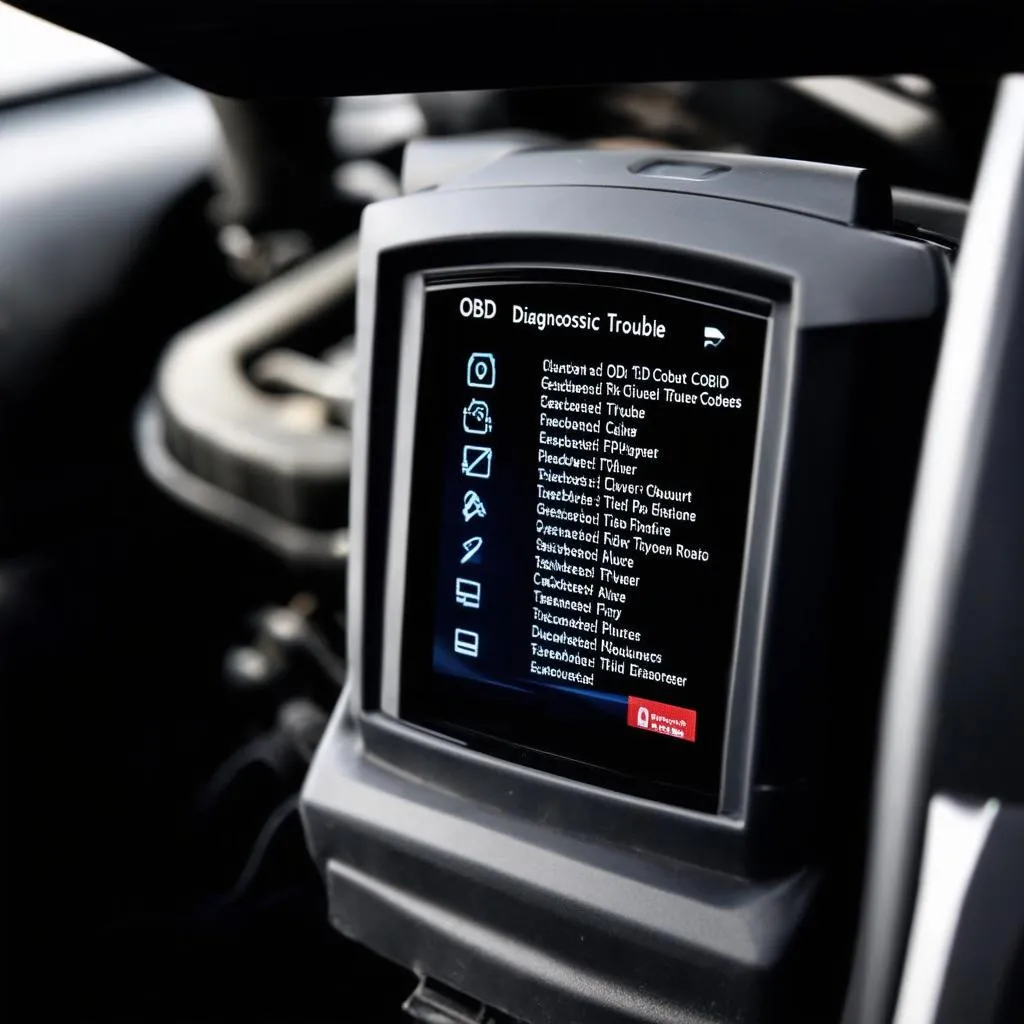Have you ever hesitated before plugging in your OBD scanner, wondering if it might somehow mess up your car’s computer system and make it unreadable the next time? It’s a surprisingly common fear, and some even compare it to the age-old superstition of breaking a mirror bringing seven years of bad luck. But in the world of automotive diagnostics, are these fears founded or just myths we perpetuate?
Decoding the Mystery: How OBD Scanners Interact with Your Car
To understand why this fear is unfounded, let’s first demystify how OBD (On-Board Diagnostics) scanners work. Think of your car’s computer system as its brain, constantly monitoring and controlling various functions. The OBD port, usually located under the dashboard, is like a communication portal to this brain.
When you plug in an OBD scanner, it’s like having a conversation with your car’s computer. The scanner sends requests for information, and the car’s computer responds by sharing data stored in its memory, such as:
- Diagnostic Trouble Codes (DTCs): These codes act like flagged errors, indicating potential issues within your car’s systems.
- Freeze Frame Data: This snapshot captures various engine parameters at the moment a fault code was triggered.
- Live Data Stream: This provides real-time information about your car’s performance, such as engine speed, coolant temperature, and oxygen sensor readings.
 OBD Scanner in Use
OBD Scanner in Use
Debunking the Myth: OBD Scanners Don’t Cause Amnesia
Here’s the reassuring part: using an OBD scanner does not erase or alter your car’s memory, making it unreadable in the future.
Think of it like reading a book. You can open the book, read its contents, and close it again without erasing the words on the pages. Similarly, an OBD scanner simply “reads” the information stored in your car’s computer. It doesn’t have the power to delete or modify this information.
As John Miller, an automotive electronics expert and author of “The Complete Guide to Automotive Diagnostics,” explains, “OBD scanners are designed for retrieval, not modification. They act as passive listeners, extracting data without altering the source.”
Addressing Common Concerns: What OBD Scanners Can’t Do
While OBD scanners are generally safe to use, it’s important to acknowledge some limitations and potential misconceptions:
Can using an OBD scanner void my car’s warranty?
Absolutely not! In fact, using an OBD scanner to diagnose a problem can be beneficial when dealing with warranty claims. It allows you to provide more information about the issue, potentially speeding up the repair process.
Can I accidentally damage my car’s computer by using an OBD scanner incorrectly?
While highly unlikely, it’s theoretically possible to damage the OBD port itself if you force the scanner in incorrectly. However, causing any real harm to your car’s computer through the OBD port requires specialized equipment and knowledge beyond what a typical OBD scanner possesses.
 Car Diagnostic Report
Car Diagnostic Report
Navigating the World of OBD Scanners: Tips for Safe and Effective Use
- Choose the Right Scanner: Opt for a reputable brand and a scanner compatible with your car’s make and model.
- Handle with Care: Avoid forcing the scanner into the port. If it doesn’t connect smoothly, double-check the alignment.
- Interpret Codes Carefully: Don’t jump to conclusions based on a single code. Research its meaning and consider related symptoms.
- Consult a Professional: For complex issues or if you’re unsure about interpreting the results, seek assistance from a qualified mechanic.
Exploring Further: Related Questions and Resources
- What are the different types of OBD scanners?
- How do I clear trouble codes after fixing a problem?
- Can I use an OBD scanner to program new keys for my car?
Find more insightful articles and resources on our website, techcarusa.com, to expand your automotive knowledge.
Need Expert Help with Your Car Diagnostics?
We’re here to help! Contact our team of automotive experts via WhatsApp at +84767531508 for personalized assistance with your car’s diagnostic needs. We offer 24/7 support and can help you navigate the complexities of modern automotive technology.